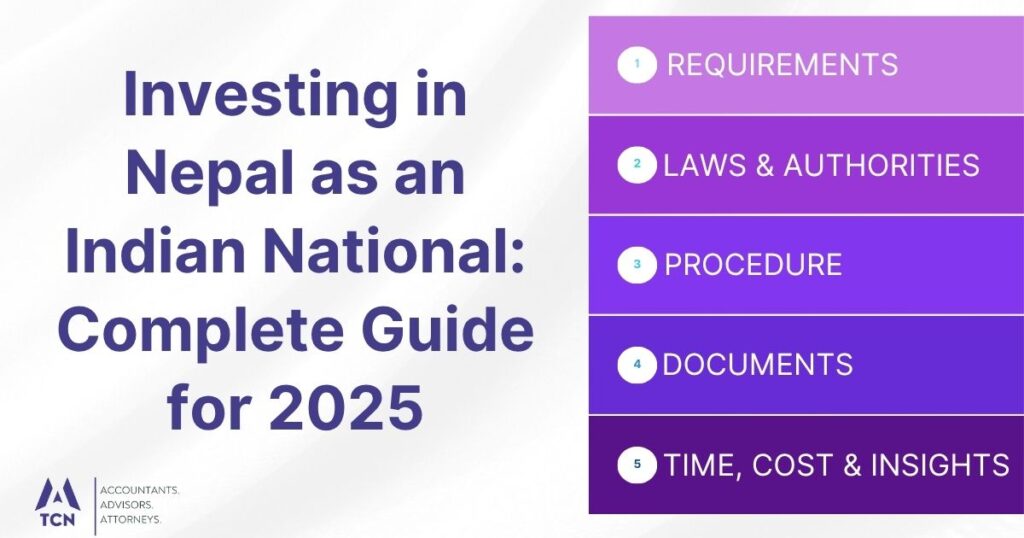Nepal presents tremendous investment opportunities for Chinese investors seeking to expand their business ventures in South Asia. The country’s strategic location between China and India, coupled with favorable investment policies, makes it an attractive destination for foreign direct investment. Chinese investors can explore various sectors including hydropower, tourism, manufacturing, and infrastructure development while benefiting from Nepal’s growing economy.
Understanding Nepal’s Investment Landscape for Chinese Investors
Nepal actively welcomes foreign investment through its liberal investment policies and bilateral agreements with China. The Foreign Investment and Technology Transfer Act (FITTA) 2019 serves as the primary legislation governing foreign investment in Nepal. This comprehensive framework provides clear guidelines for Chinese investors looking to establish businesses or invest in existing enterprises within Nepal’s borders.
The Nepal-China relationship has strengthened significantly over recent years, with both countries signing multiple agreements to facilitate trade and investment. The Belt and Road Initiative (BRI) has further enhanced investment opportunities, creating a conducive environment for Chinese businesses to operate in Nepal.
Key Investment Sectors Available to Chinese Investors
Chinese investors can participate in numerous sectors under Nepal’s investment framework:
- Hydropower Development: Nepal’s vast hydropower potential offers significant opportunities
- Tourism and Hospitality: Growing tourism sector with infrastructure development needs
- Manufacturing Industries: Textile, cement, and consumer goods production
- Information Technology: Software development and digital services
- Agriculture and Food Processing: Modern farming techniques and food processing facilities
- Infrastructure Development: Roads, bridges, and urban development projects
Legal Framework Governing Chinese Investment
The Foreign Investment and Technology Transfer Act 2019 establishes the legal foundation for Chinese investment in Nepal. This act replaced the previous Foreign Investment and Technology Transfer Act 1992, introducing more investor-friendly provisions and streamlined procedures.
Key provisions under FITTA 2019 include:
- Simplified approval processes for foreign investment
- Protection of foreign investor rights and interests
- Repatriation facilities for profits and capital
- Dispute resolution mechanisms through arbitration
- Tax incentives and exemptions for priority sectors
Investment Requirements and Eligibility Criteria
Chinese investors must meet specific requirements to invest in Nepal successfully. The Department of Industry (DOI) serves as the primary regulatory body overseeing foreign investment applications and approvals. Understanding these requirements ensures smooth investment processes and compliance with Nepalese regulations.
Minimum Investment Thresholds
The Foreign Investment and Technology Transfer Act 2019 establishes minimum investment requirements:
- Manufacturing Industries: Minimum NPR 50 million investment required
- Service Sectors: Minimum NPR 20 million investment threshold
- Energy Projects: Minimum NPR 100 million for hydropower projects
- Tourism Projects: Minimum NPR 30 million for hotel and resort development
Restricted and Prohibited Sectors
Certain sectors remain restricted or prohibited for foreign investment under Nepalese law:
Prohibited Sectors:
- Cottage industries with investment below NPR 30 million
- Personal service businesses (hair cutting, beauty parlors)
- Retail trading except department stores and shopping malls
- Arms and ammunition manufacturing
Restricted Sectors:
- Security services (maximum 49% foreign ownership)
- Domestic airlines (maximum 49% foreign ownership)
- Production of alcoholic beverages (maximum 80% foreign ownership)
Documentation Requirements for Chinese Investors
Chinese investors must prepare comprehensive documentation packages for investment approval:
Primary Documents Required:
- Valid passport and visa documentation
- Company registration certificate from China
- Audited financial statements for the last three years
- Bank guarantee or financial capability certificate
- Project feasibility study and business plan
- Environmental impact assessment (if applicable)
Additional Documentation:
- Technology transfer agreements (if applicable)
- Joint venture agreements with Nepalese partners
- Land acquisition or lease agreements
- Municipal permits and clearances
- Tax clearance certificates
Step-by-Step Investment Process for Chinese Investors
Step 1: Conduct Market Research and Feasibility Analysis
Chinese investors should begin by conducting thorough market research to identify viable investment opportunities in Nepal. This involves analyzing market demand, competition, regulatory requirements, and potential returns on investment. Engaging local consulting firms like TCN can provide valuable insights into Nepal’s business environment and investment climate.
Step 2: Prepare Investment Proposal and Documentation
Prepare a comprehensive investment proposal including detailed business plans, financial projections, and technical specifications. Gather all required documents including company certificates, financial statements, and feasibility studies. Ensure all documents are properly authenticated and translated into Nepali or English as required by Nepalese authorities.
Step 3: Submit Application to Department of Industry
Submit the complete investment application to the Department of Industry along with required fees and documentation. The DOI reviews applications based on established criteria including investment amount, technology transfer, employment generation, and export potential. Applications undergo thorough evaluation by relevant government departments and agencies.
Step 4: Obtain Necessary Approvals and Permits
Upon initial approval, obtain additional permits and clearances from relevant authorities including municipal permits, environmental clearances, and sector-specific approvals. Register the company with the Office of Company Registrar and obtain necessary tax registrations from the Inland Revenue Department.
Step 5: Complete Investment Implementation and Operations
Implement the approved investment project according to the submitted timeline and specifications. Comply with all regulatory requirements including employment laws, tax obligations, and reporting requirements. Maintain regular communication with regulatory authorities and ensure ongoing compliance with Nepalese investment regulations.
Required Documents and Paperwork
Chinese investors must prepare extensive documentation to support their investment applications in Nepal. The Department of Industry requires specific documents to evaluate investment proposals and ensure compliance with Nepalese regulations.
Corporate Documents from China
Essential Corporate Documentation:
- Certificate of incorporation or business registration
- Articles of association and memorandum of association
- Board resolution authorizing Nepal investment
- Power of attorney for authorized representatives
- Company profile and organizational structure
Financial Documentation:
- Audited financial statements for three consecutive years
- Bank statements and financial capability certificates
- Credit rating reports from recognized agencies
- Investment fund source verification documents
Project-Specific Documentation
Technical and Operational Documents:
- Detailed project feasibility study
- Technical specifications and implementation timeline
- Environmental impact assessment report
- Land acquisition or lease agreements
- Infrastructure development plans
Regulatory Compliance Documents
Chinese investors must also prepare regulatory compliance documentation:
- Tax clearance certificates from Chinese authorities
- Good standing certificates from relevant Chinese government agencies
- Anti-money laundering compliance certificates
- Corporate social responsibility policy documents
Investment Approval Timeline and Processing
The investment approval process in Nepal follows established timelines under the Foreign Investment and Technology Transfer Act 2019. Understanding these timelines helps Chinese investors plan their investment activities effectively and manage expectations regarding approval processes.
Standard Processing Timeline
Initial Application Review: 15-30 working days The Department of Industry conducts preliminary review of investment applications, checking documentation completeness and basic eligibility criteria. Incomplete applications may require additional time for document submission and verification.
Detailed Evaluation Phase: 30-45 working days
Relevant government agencies conduct detailed evaluation of investment proposals, including technical feasibility, environmental impact, and compliance with sectoral regulations. Complex projects may require extended evaluation periods.
Final Approval and Registration: 15-20 working days Upon satisfactory evaluation, the DOI issues investment approval certificates and facilitates company registration processes. Additional permits and clearances may require separate processing timelines.
Factors Affecting Processing Time
Several factors can influence investment approval timelines:
- Project Complexity: Large-scale infrastructure projects require extended evaluation
- Documentation Quality: Complete and accurate documentation expedites processing
- Sectoral Requirements: Certain sectors have additional regulatory requirements
- Government Agency Coordination: Multi-agency approvals may extend timelines
Investment Costs and Fee Structure
Chinese investors must budget for various costs associated with investing in Nepal. The fee structure includes government fees, professional service charges, and operational expenses required for successful investment implementation.
Government Fees and Charges
Department of Industry Fees:
- Application processing fee: NPR 1,000 to NPR 10,000 (based on investment size)
- Investment approval certificate fee: NPR 5,000 to NPR 25,000
- Annual renewal fees: NPR 2,000 to NPR 15,000
Company Registration Fees:
- Company registration fee: NPR 1,000 to NPR 5,000
- Name reservation fee: NPR 500
- Certificate issuance fee: NPR 1,000
Professional Service Costs
Legal and Consulting Services:
- Legal advisory services: USD 2,000 to USD 10,000
- Business consulting fees: USD 1,500 to USD 8,000
- Document preparation and translation: USD 500 to USD 2,000
- Ongoing compliance support: USD 1,000 to USD 5,000 annually
Additional Operational Costs
Chinese investors should also consider:
- Office setup and infrastructure costs
- Staff recruitment and training expenses
- Marketing and business development costs
- Insurance and risk management expenses
- Banking and financial service charges
Post-Investment Compliance and Obligations
After receiving investment approval, Chinese investors must fulfill ongoing compliance obligations under Nepalese law. The Foreign Investment and Technology Transfer Act 2019 establishes specific requirements for foreign investors to maintain their investment status and operate legally in Nepal.
Reporting Requirements
Annual Reporting Obligations:
- Submit annual progress reports to the Department of Industry
- Provide financial statements and audit reports
- Report employment statistics and local hiring data
- Submit technology transfer implementation reports
Quarterly Reporting:
- Foreign exchange utilization reports
- Import and export statistics
- Production and sales data
- Compliance status updates
Tax Obligations and Compliance
Chinese investors must comply with Nepal’s tax regulations including:
- Income Tax: Corporate income tax rates apply to business profits
- Value Added Tax: VAT registration and compliance for applicable businesses
- Withholding Tax: Tax obligations on payments to foreign entities
- Customs Duties: Import duty compliance for equipment and materials
Employment and Labor Compliance
Labor Law Compliance Requirements:
- Adherence to Nepal Labor Act 2017 provisions
- Minimum wage compliance and worker benefits
- Work permit requirements for Chinese employees
- Local employment quotas and training obligations
- Workplace safety and health standards compliance
Banking and Financial Services for Chinese Investors
Chinese investors require comprehensive banking and financial services to support their investment activities in Nepal. Nepal’s banking sector offers various services tailored to foreign investors, including foreign exchange facilities, trade finance, and investment banking services.
Foreign Exchange Regulations
The Foreign Exchange (Regulation) Act 2019 governs foreign exchange transactions in Nepal:
- Repatriation Rights: Foreign investors can repatriate profits and capital
- Foreign Currency Accounts: Permitted for approved foreign investment projects
- Exchange Rate Management: Market-determined exchange rates apply
- Documentation Requirements: Proper documentation required for all transactions
Banking Services Available
Commercial Banking Services:
- Corporate account opening and management
- Trade finance and letters of credit
- Foreign exchange services and hedging
- Cash management and treasury services
- Investment advisory and wealth management
Frequently Asked Questions
What is the minimum investment amount required for Chinese investors in Nepal?
Chinese investors must invest minimum NPR 50 million in manufacturing, NPR 20 million in services, NPR 100 million in energy projects, and NPR 30 million in tourism sectors under FITTA 2019 regulations.
How long does the investment approval process take in Nepal?
The complete investment approval process typically takes 60-95 working days, including initial review (15-30 days), detailed evaluation (30-45 days), and final approval with registration (15-20 days) phases.
Where should Chinese investors submit their investment applications?
Chinese investors must submit investment applications to the Department of Industry (DOI) in Kathmandu, which serves as the primary regulatory body for foreign investment approval and registration processes.
What documents are required for Chinese investment applications in Nepal?
Required documents include valid passports, company registration certificates, audited financial statements, bank guarantees, project feasibility studies, environmental assessments, and properly authenticated corporate documentation from China.
What are the total costs involved in investing in Nepal from China?
Total investment costs include government fees (NPR 10,000-50,000), professional services (USD 4,000-20,000), operational setup costs, and ongoing compliance expenses varying based on project size and complexity.


